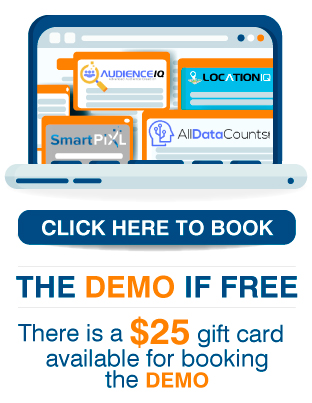Unleashing the Power of Audience Insights to Drive Effective Social Media Strategies in Retail, Automotive, and Beyond
Social media has become indispensable for businesses looking to connect with consumers, build brand awareness, and drive sales. However, with the ever-increasing volume of content and competition on social platforms, standing out from the crowd and effectively reaching your target audience can be daunting. Fortunately, by harnessing the power of audience data, businesses can transform their social media campaigns and achieve remarkable results in various industries.
Understanding Audience Data—Audience data encompasses a wealth of information about your target demographic, including demographic information like age, gender, income, interests, behaviors, and preferences. By collecting and analyzing this data, businesses can gain valuable insights into their audience’s wants, needs, and motivations. This allows them to tailor their social media content and messaging to effectively resonate with their target audience.
Personalized Content and Messaging – One of the most significant benefits of leveraging audience data in social media campaigns is the ability to create customized content and messaging that speaks directly to your target audience’s interests and preferences. By segmenting your audience based on demographic and behavioral data, you can deliver highly targeted content that resonates with specific segments of your audience, increasing engagement and driving conversions.
For example, in the retail industry, businesses can use audience data to personalize product recommendations, promotions, and offers based on individual customer preferences and purchase history. Similarly, automotive brands can leverage audience data to deliver targeted ads and content to consumers based on their vehicle preferences, driving habits, and purchase cycles.
Optimized Ad Targeting – Audience data also plays a crucial role in optimizing ad targeting on social media platforms. By leveraging audience segmentation and targeting capabilities, businesses can ensure that their ads reach the right people at the right time, maximizing their effectiveness and return on investment.
For retail brands, audience data can inform ad targeting strategies based on location, age, gender, and interests, allowing them to reach consumers most likely to be interested in their products and services. Similarly, automotive brands can use audience data to target consumers based on factors such as vehicle ownership status, lifestyle, and purchase intent, ensuring that individuals see their ads when they are in the market to purchase a new vehicle.
Measuring and Optimizing Campaign Performance—Audience data can help businesses measure and optimize the performance of their social media campaigns in real-time. By tracking key metrics such as engagement, click-through rates, and conversions, companies can gain insights into which content and messaging resonates most with their audience and adjust their strategies accordingly.
For example, retail brands can use audience data to track the performance of different product promotions and offers. This allows them to identify which campaigns drive the most sales, adjust their marketing strategies, and spend accordingly. Similarly, automotive brands can use audience data to measure the effectiveness of their ad targeting strategy and refine their approach to more effectively reach their desired audience.
In conclusion, audience data can transform social media campaigns across retail, automotive, and many more industries. By leveraging audience insights to personalize content and messaging, optimize ad targeting, and measure campaign performance, businesses can unlock new opportunities for engagement, conversion, and growth on social media platforms. As social media continues to evolve, audience data will play an increasingly critical role in helping businesses stay ahead of the competition and connect meaningfully with their target audience.

